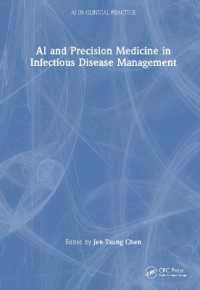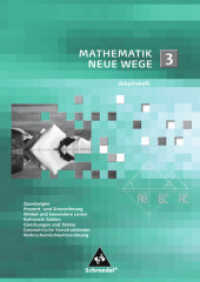- ホーム
- > 洋書
- > ドイツ書
- > Humanities, Arts & Music
- > Religion & Theology
- > christianity
Full Description
The essays by Margaret M. Mitchell collected in this volume were published over a roughly twenty-five year span of time, and range in scope from the treatment of a two-word phrase (περὶ δέ, "now concerning," in 1 Corinthians and 1 Thessalonians) to the role of "the written record" in the formation, diffusion, and ultimate success of the Gentile Christ-believing mission in the first three centuries. At the heart of these studies are two main claims: an insistence that it was by no means predictable that textuality would be a crucial medium of the Christ-believing apocalyptic missionary movements, and the contention that in a significant way it was the influence of the self-styled "apostolic envoy," Paul, that made it so. These arguments involve not only a retracing of the history and development of Paulinism, in some sense, but also an analysis, both hermeneutical and history-of-religions, of the role of texts in the life of the historical Paul, in the extant remnants of the historical-epistolary Paul (i.e., of the homologoumena), and in that of Paulinist readers, writers, collectors, redactors, narrators, and interpreters from his time forward. This extends from the flexible poetics of his accordion-like "gospel narrative" that could be expanded and contracted to encompass and address with sophistication all kinds of issues in occasion-specific written texts, to the theological grounding of that gospel proclamation κατὰ τὰς γραφάς ("according to the scriptures," 1 Cor 15:3-4), to the religious logic of "envoyage" and "epiphany" that animated his self-understanding of mediated presence of Jesus Christ crucified, to the powerful poetics of epistolary literature that enabled the absent Paul to speak from a distance and so even the dead Paul to continue to speak to generation after generation in a trans-local and trans-temporal religious community formed in relation to these texts, their claims, and their ritual embodiments. The story of the development of an early Christian literary culture is not ancillary to a proper study of the "rise of Christianity" but is a key to it, the isolation of a major strand of its DNA and its processes for replication across time and space.







